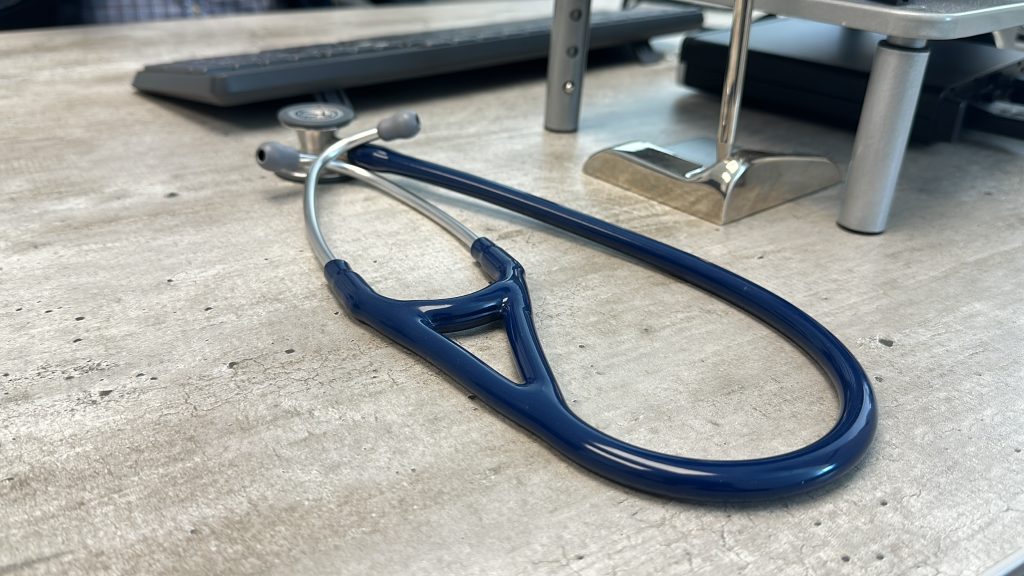GAP agreement: annual premium per patient offered to Quebec family doctors drops by $20

Posted June 14, 2024 2:40 pm.
Last Updated June 14, 2024 7:26 pm.
The annual premium offered to Quebec family physicians for each patient registered through the guichet d’accès à la première ligne, known as the GAP, has dropped by $20 – to $100 per patient annually.
This bonus for taking a new patient comes in two separate payments. $50 dollars is paid when the doctor has made themselves available and the second payment of $50 dollars made at the time of the appointment.
The president of the Fédération des médecins omnipraticiens du Québec (FMOQ), Dr. Marc-André Amyot, presented the details of the agreement reached with the Quebec government the previous day to his members at noon on Friday.
The duration of this agreement is for 12 months and retroactive to June 1 according to the FMOQ.
Both parties seem satisfied with the agreement reached. Health Minister Christian Dubé pointed out on Thursday that the GAP bridge agreement would “preserve certain important principles, such as collective enrolment.”
Since 2022, an annual premium of $120 had been paid for each patient enrolled in a family medicine group (FMG) via the GAP. This was intended to enable FMGs to take on patients without a family doctor.
This agreement came to an end on May 31, resulting in a decrease in the number of physician appointments available on the GAP. At one point, the number of appointments offered via the primary care access window had dropped from 17,604 in the week of May 18 to 1,133 for the week of June 29.
In a press scrum on Thursday, Dr. Amyot suggested that the number of appointments offered via GAP should increase, compared with the decline observed since the end of the agreement. However, this will not return to “the previous state of GAP.”
He explained that some doctors who had decided to postpone retirement in order to offer GAP services may now have retired in the context of uncertainty as to whether the agreement would be renewed.
The renewal of the agreement to keep family doctors in the GAP program is a relief for Eric Ross, a Montrealer, who uses the service.
“I’m very happy with it because that’s the only way I can get to a doctor is through my GAP,” said Ross. “I’ve been on a three-year waiting list just to get a provider to help me with the smallest things, colds and things such as that. So with GAP, it’s working and I hope it continues.”
Certain doctors in the Montreal area seem to welcome the new deal.
“We’re very happy that there is an extension with the entente. This entente, and let’s be clear, addresses an immediate need and does not deal with the underlying problems,” said Dr. Michael Kalin, a Côte Saint-Luc family doctor.
“It’s an incentive for doctors to work more, for GPs to work more,” said Dr. Ya Ning Gao, a Montreal family doctor. “And I think that’s interesting for the general population, too, because a GP, by definition, is somebody who addressed the majority of the personal health care needs for the general population.”
Despite the agreement, there is still frustration about the lack of access to a family doctor for many Quebecers, especially in Montreal.
“We do pay for Medicare, so they should be able to take care of the people, the 900,000 people that do need it,” said Sharon Green visiting downtown Montreal from Blainville, Quebec.
“What can I tell you? The healthcare system in this province sucks. Plain and simple,” said Rick, a Montrealer, walking on Saint-Catherine street in downtown Montreal.
“We have to work towards a solution. The GAP is an interim measure, we have to remember that,” added Dr. Kalin. “It’s about providing access to people who do not have a doctor. The government has to get their act together and find doctors. This is not going to get solved, it’s going to get worse as our doctors age and retire and this is going to get worse and worse over the next few years.”
–The Canadian Press health content receives funding through a partnership with the Canadian Medical Association. The Canadian Press is solely responsible for editorial choices.
–This report by La Presse Canadienne was translated by CityNews








